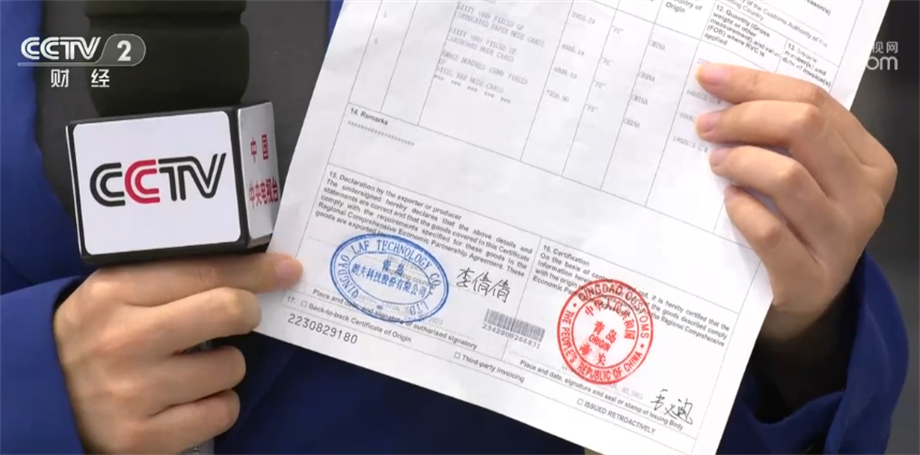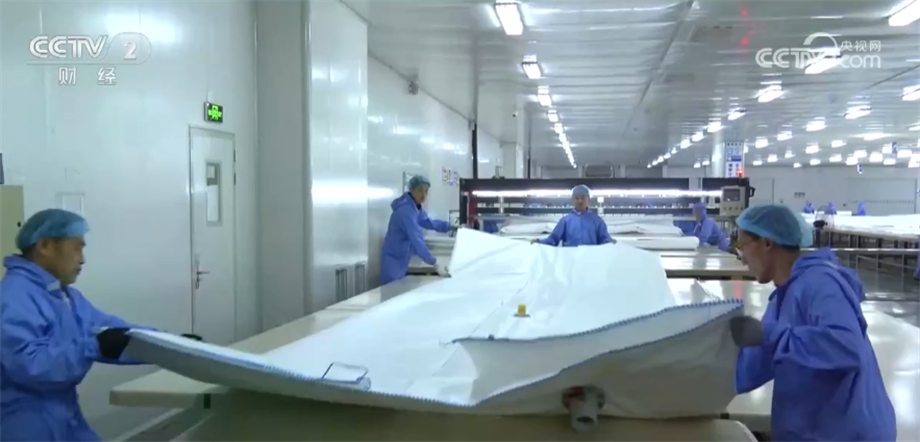CCTV News:Regional Comprehensive Economic Partnership Agreement (RCEP) is a trade agreement signed by 15 member countries including China, Japan and New Zealand. Today (June 2nd), with the entry into force of RCEP for the Philippines, all 15 member countries have completed the entry-into-force procedures and mutually implemented tariff concessions, and the agreement has entered a new stage of full implementation.
In the early morning of June 2, at the Certificate of Origin Examination Center of RCEP Pioneer Innovation Experimental Base in Qingdao, Shandong Province, customs officers issued RCEP certificates of origin for a batch of 5.6-ton container liquid bags exported to the Philippines.
CCTV reporter lin li:This one in my hand is the certificate of origin of RCEP. From now on, the option of the Philippines has been added to the column of exporter’s declaration on the certificate, which means that all 15 member countries of RCEP have completed the entry into force procedures and implemented tariff concessions to each other. With this certificate in my hand, the enterprise can reduce the import tariff of more than 2000 yuan when importing this ticket of goods in the Philippines.

Li Qianqian, Assistant General Manager of a Technology Co., Ltd. in Qingdao, Shandong Province:(Products) can enjoy the tariff reduction from 3% to zero. Last year, the company exported about 4 million yuan to the Philippines, and our export of orders to the Philippines this year is expected to increase by 10%. (RCEP) can bring about 80,000 yuan in tariff concessions to enterprises.
The data shows that China has become the largest trading partner of the Philippines for six consecutive years. In 2022, the total value of import and export commodities between China and the Philippines reached 585.28 billion yuan, a year-on-year increase of 10.6%. After RCEP comes into effect for the Philippines, the Philippines will add zero-tariff treatment to Chinese automobiles and parts, some plastic products, textiles and garments.

Bi Haijun, Director of Customs Department of Qingdao Customs:After RCEP completes the tax reduction process, the goods imported from the Philippines can be sold in China — On the basis of the ASEAN Free Trade Agreement, the tariff cost will be reduced by more than 30 million yuan.